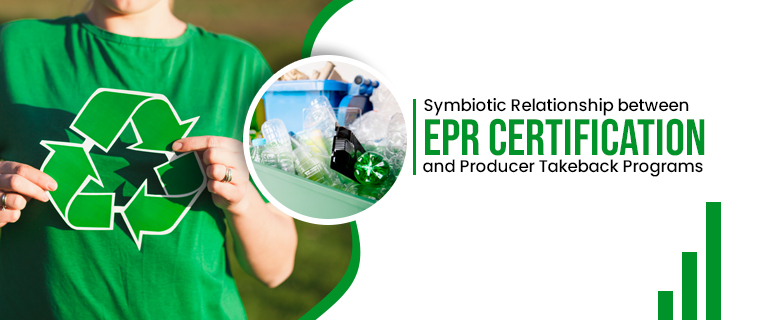The Vital Role of EPR Certificates in E-Waste Recycling
In the contemporary digital age, electronic devices have become ubiquitous, transforming the way we live, work, and communicate. However, this technological revolution has also given rise to a significant environmental challenge—electronic waste, or e-waste. To address this burgeoning issue and promote responsible waste management, the importance of Extended Producer Responsibility (EPR) certificates in e-waste recycling cannot be overstated.
Understanding the E-Waste Predicament:
E-waste encompasses discarded electronic devices, ranging from smartphones and laptops to refrigerators and televisions. With rapid technological advancements leading to shortened product lifespans, the volume of e-waste generated globally has skyrocketed. Unfortunately, improper disposal and inadequate recycling of e-waste pose severe environmental and health risks.
Heavy metals, toxic chemicals, and other hazardous substances found in electronic devices can contaminate soil, air, and water if not handled properly. Moreover, the inefficient management of e-waste contributes to the depletion of valuable resources and exacerbates the global waste crisis. In this context, EPR emerges as a crucial framework to ensure that producers actively engage in mitigating the environmental impact of their electronic products.
Read also this-: The Significance of EPR Certification in Waste ManagementThe Foundation: EPR Certificates
At the heart of EPR in the realm of e-waste lies the EPR certificate—a document that signifies a producer's commitment to managing the entire lifecycle of their electronic products responsibly. Let's delve into the key facets that highlight the significance of EPR certificates in e-waste recycling:
1. Responsibility and Accountability:
EPR certificates establish a clear line of responsibility, shifting the burden of proper e-waste management from governments to the producers. By obtaining an EPR certificate, manufacturers commit to handling the end-of-life phase of their electronic products, encompassing collection, disposal, and recycling. This accountability ensures that producers actively contribute to solving the e-waste predicament they inherently contribute to.
2. Comprehensive Waste Collection Systems:
The acquisition of an EPR certificate mandates producers to establish robust waste collection systems. This involves creating channels for consumers to return their old electronic devices conveniently. By fostering organized collection mechanisms, EPR certificates facilitate the systematic gathering of e-waste, preventing it from ending up in landfills or being illegally exported to developing countries for inappropriate disposal.
3. Promoting Circular Economy:
EPR certificates play a pivotal role in promoting a circular economy within the electronics industry. Through the requirement to take back and recycle electronic products, producers are encouraged to incorporate principles of sustainability in their design and manufacturing processes. This shift towards circularity not only minimizes the environmental impact but also reduces the demand for new raw materials, fostering a more sustainable and resource-efficient industry.
4. Encouraging Innovation in Recycling Technologies:
To meet the stringent requirements of EPR certificates, producers are incentivized to invest in innovative recycling technologies. This innovation extends beyond traditional recycling methods, spurring the development of advanced techniques for extracting valuable materials from electronic waste. As a result, the recycling industry experiences a surge in technological advancements, contributing to both environmental conservation and economic growth.
5. Ensuring Proper Disposal of Hazardous Materials:
E-waste often contains hazardous substances like lead, mercury, and brominated flame retardants. EPR certificates mandate producers to ensure the safe disposal of such materials. This not only protects the environment from potential contamination but also safeguards the health and well-being of those involved in the recycling process.
6. Global Alignment with Sustainable Development Goals:
EPR certificates align with international efforts to achieve Sustainable Development Goals (SDGs), particularly Goal 12 - Responsible Consumption and Production. By integrating principles of responsible product lifecycle management, EPR contributes to reducing waste generation, promoting resource efficiency, and fostering sustainable consumption patterns.
Read also this-: Demystifying the full form of EPR CertificateChallenges and Opportunities:
While EPR certificates hold immense promise for e-waste recycling, they are not without challenges. Producers face complexities in redesigning products for recyclability, establishing efficient collection systems, and navigating diverse regulatory landscapes globally. However, these challenges present opportunities for innovation, collaboration, and the emergence of a more sustainable electronic industry.
Conclusion
In conclusion, the importance of EPR certificates in e-waste recycling cannot be overstated. These certificates serve as a catalyst for change, compelling producers to actively address the environmental impact of their electronic products. By ensuring responsible waste management, fostering a circular economy, and encouraging innovation, EPR certificates play a pivotal role in reshaping the electronics industry into a more sustainable and environmentally conscious sector. As we navigate the digital era, embracing EPR in e-waste recycling is not just a regulatory obligation but a critical step towards a greener and more sustainable future.



Comments
Post a Comment